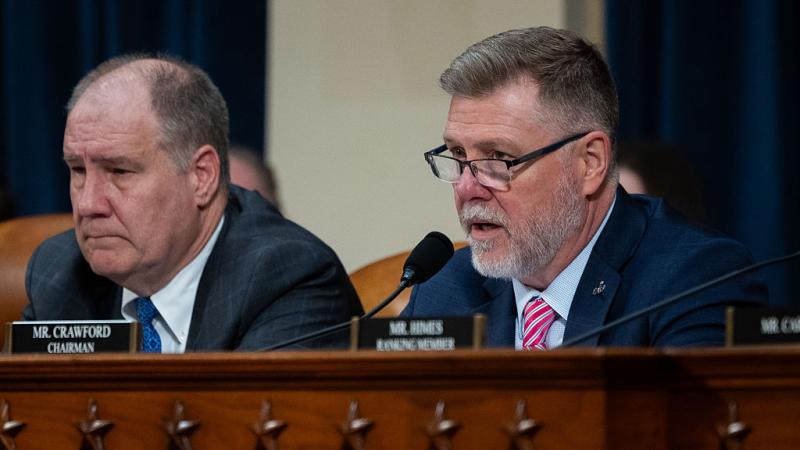Can Virginia teachers refuse students' preferred pronouns? School board won't tell court 'directly'
Virginia Supreme Court's reinstatement of Peter Vlaming's lawsuit under state's sweeping conscience laws and his recent six-figure settlement show no jury trial is needed to strike down another school board's policies, teachers argue.
Ten months after the Virginia Supreme Court reinstated a lawsuit by a Christian teacher fired for refusing to use a transgender student's preferred pronouns, leading West Point School Board last month to pay Peter Vlaming $575,000 and change its policies to prevent a worse outcome in court, the writing appears to be on the wall for another Old Dominion school district.
Christian teachers Deborah Figliola, Kristine Marsh and Laura Nelson filed motions for summary judgment and to block a jury trial in their June 2022 lawsuit against the Harrisonburg City School Board, which acknowledged while the high court deliberated that its ruling would settle whether the district can punish employees "for repeatedly not using the preferred pronouns of a child."
As did Vlaming, the Harrisonburg teachers seek relief under Virginia statutory and constitutional law that grant more far-reaching conscience rights than the U.S. Constitution under the 1990 U.S. Supreme Court precedent Smith, which upheld "generally applicable" religious infringements and spurred more than half the states to adopt stronger religious freedom laws.
The state high court accepted Vlaming's case after a hearing on whether Virginia residents' rights were "slowly vanishing" into the "watered-down version" of the free-exercise clause under that ruling. The West Point and Harrisonburg cases were both brought by the Alliance Defending Freedom.
"This case has been developing as expected" despite Rockingham County Circuit Court declining to issue a preliminary injunction in December 2022 against Harrisonburg, finding no likelihood of irreparable harm, ADF senior counsel Vincent Wagner told Just the News.
Judge Andrew Baugher took Superintendent Michael Richards at his word that "there has been no actual discipline and no threat of potential discipline" under Policy 401, which requires teachers to both ask for and use students' preferred names and pronouns but hide preferred names and gender transitions from parents, so the plaintiffs are safe "at this time."
"We’ve been working through discovery to get documents and other information from the school board concerning the policies we’re challenging," with the court most recently issuing an order in July, and the West Point ruling determines the Harrisonburg outcome, Wagner said in an email.
School board chair Andrew Kohen responded to Just the News queries to individual board members, declining comment because "the matter continues to be pending."
The Harrisonburg teachers got further into their suit than did Vlaming before his first setback, with the Virginia Supreme Court scolding King William County Circuit Court for tossing the West Point complaint based on the pleadings, "[w]ithout hearing any evidence." The school district wouldn't let Vlaming avoid the student's pronouns altogether, even in conversations with others.
The high court said it has "never" interpreted Virginia's conscience law through the Smith precedent, and the latter's "shelf life in the federal courts remains uncertain" owing to Supreme Court justices calling for its reconsideration going back decades. Thomas Jefferson's 1786 law set the bar high for religious infringement: "overt acts against peace and good order."
Legal discovery thus far shows "no genuine disputes of fact" relevant to the teachers' claims, with the school board admitting "dozens of students in the last few years" have requested preferred pronouns, "even without parental notice or consent," and has only disavowed punishing teachers for not asking for students' pronouns, the Harrisonburg teachers' combined memorandum for their motions says.
The teachers say they aren't seeking any relief that a jury trial, which the district seeks, would grant them.
The "best practices" laid out in employee trainings for Policy 401 "arose from the School Board’s nondiscrimination policy, which threatens discipline — expressly including termination — for noncompliance," the memo says. "A reasonable employee wouldn’t miss the connection."
Trainings included a "Supporting Our Transgender Students" presentation based on the Department of Education’s "model policies" for transgender students under then-Democratic Gov. Ralph Northam, which Republican Gov. Glenn Youngkin's administration repealed because it "disregarded the rights of parents and ignored other legal and constitutional principles."
It gave teachers no leeway, telling them to "immediately implement" best practices including "always" use preferred names and pronouns and do not contact parents to get their permission or make them aware of preferred names.
In Vlaming's case, the teacher avoided using third-person pronouns when referring in class to the student, who had transitioned, and instead used the student’s preferred name.
The school board's training at its own meeting emphasized it was "not appropriate" to ask parents if they know about a preferred name, and it sponsored another training by LGBTQ nonprofit Side by Side that claimed "it is illegal to out students to family" based on the now-rescinded 2021 guidelines, the memo says.
The board also started using a "Gender Transition Action Plan" form, which emphasized families would only be involved in student transitions "when appropriate" and asked students "what considerations" the school should take if their guardians were not "supportive" of their identity.
In the past nearly two years since the ruling in favor of the school board, "its admissions have left no doubt" that the teachers remain at risk of punishment, with its counsel admitting in court in July that "50 students asked to be addressed" contrary to their biological sex during litigation.
The parents of one "may not have been aware" while two others "changed their mind" before parents got involved, the memo says.
The court acknowledges the school board has yet to "directly say, no, we’re not doing this" – punishing teachers for refusing students' preferred names and pronouns – that thus far "no one has been disciplined" and that the board's counsel "repeated the same (non)answer" when the court asked if teachers were "free to ignore" the training to ask students their preferences.
The board's counsel told the court that failure to ask students for their pronouns "doesn’t amount to discrimination" but not failure to use their pronouns once known and withhold that information from parents, the memo says.
"Defendants cannot refuse to disavow while simultaneously stating that there is no injury or violation" – referring back to the absence of disciplinary consequences in the best practices – and their "repeatedly refus[al] to directly answer the Court’s questions does not create a genuine issue of fact," according to the filing.
The Facts Inside Our Reporter's Notebook
Documents
Videos
Links
- Virginia Supreme Court reinstated a lawsuit
- West Point School Board last month to pay Peter Vlaming $575,000
- motions for summary judgment and to block a jury trial
- more than half the states
- hearing on whether Virginia residents' rights were "slowly vanishing"
- Rockingham County Circuit Court declining to issue
- Virginia Supreme Court scolding
- Glenn Youngkin's administration repealed
- LGBTQ nonprofit Side by Side















